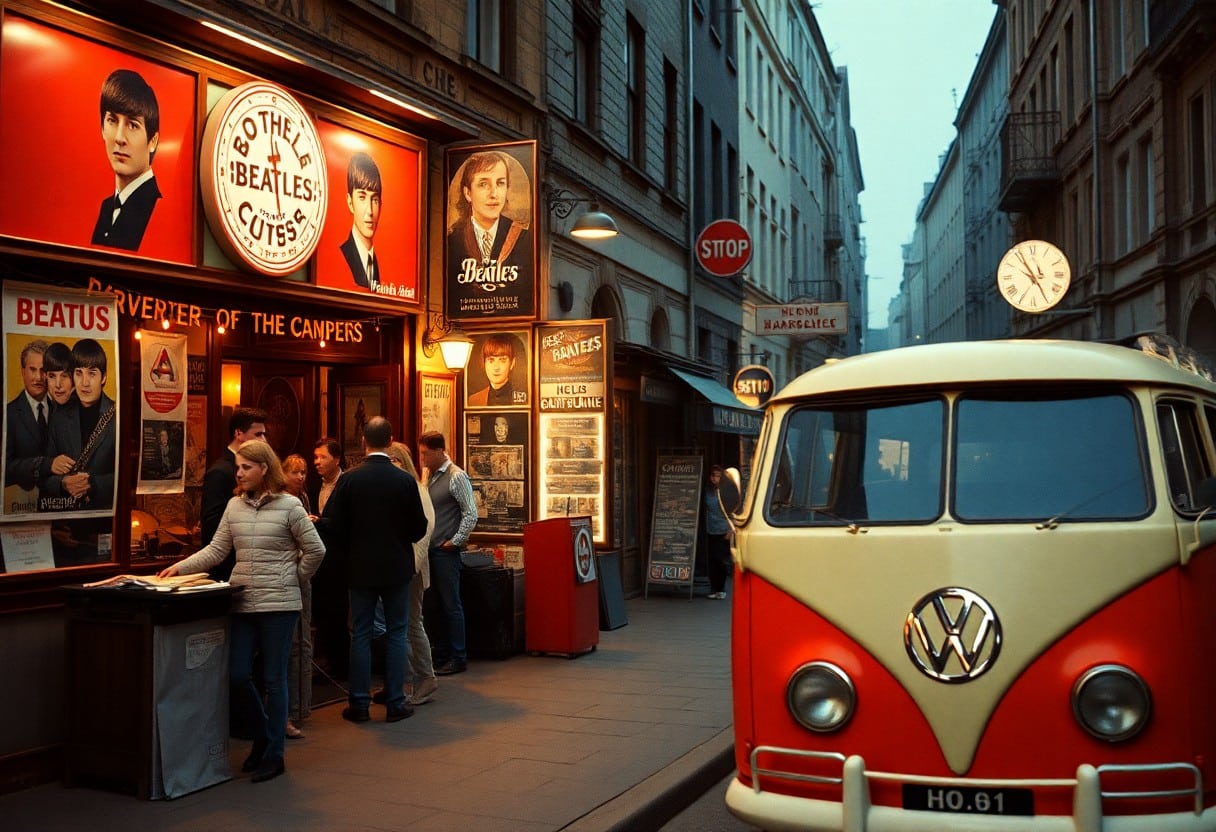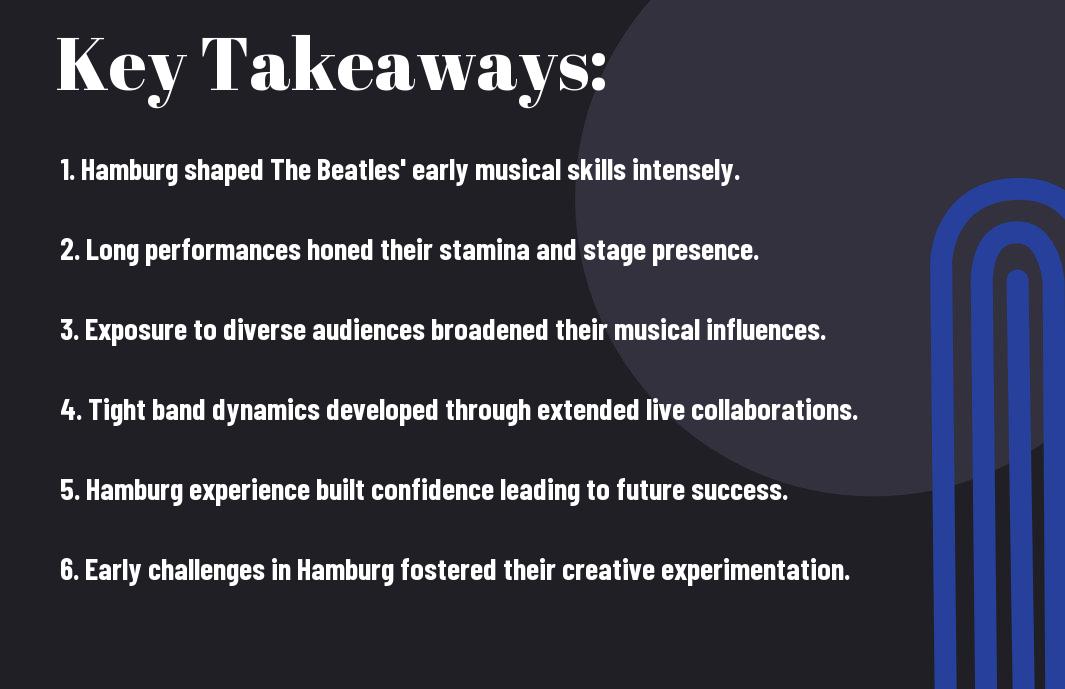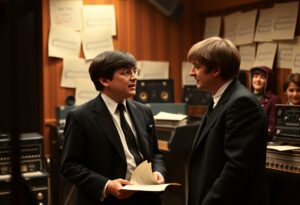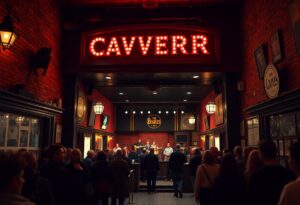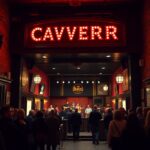Most people think of The Beatles’ success as a product of their later fame, but their transformative experience in Hamburg was a vital part of shaping their artistry and identity. As I explore their time in this vibrant city, I’ll show you how the intensity of performing in clubs and their exposure to diverse music greatly influenced their sound. Understanding this chapter of their journey can deepen your appreciation of the innovative spirit that defined their legendary legacy.
The Early Years: A Journey to Hamburg
A significant chapter in The Beatles’ history unfolded in Hamburg, where they honed their craft and solidified their identity as a band. This bustling German city offered a unique environment for the young musicians, enabling them to perform relentlessly in various venues and absorb a variety of influences. The experiences they faced in Hamburg laid the groundwork for their eventual rise to global fame.
Setting the Scene: Hamburg in the 1960s
By the early 1960s, Hamburg was a vibrant hub of nightlife and music. The city was alive with a mix of rock ‘n’ roll, jazz, and emerging pop cultures. Numerous clubs lined the streets, offering opportunities for up-and-coming bands to showcase their talent, attracting both locals and tourists eager to dance the night away. The atmosphere was electric, providing a rich backdrop for The Beatles’ development and creativity.
Finding Their Sound: Influences and Growth
Among the many experiences in Hamburg, The Beatles encountered a mix of musical styles that would significantly influence their sound. They played long sets in varied venues, exposing themselves to different genres and audiences.
In fact, their time in Hamburg became a formative experience that pushed them to experiment and adapt their music. The intense atmosphere forced them to perform long hours, enhancing their musical skills and stage presence. They were influenced by the local music scene, incorporating elements of rockabilly, blues, and even jazz into their repertoire. Surrounded by a diverse group of musicians, they gained both confidence and innovation in their artistry, ultimately leading to the creation of a sound that would resonate worldwide. I believe this journey was fundamental in shaping their identity and future success.
The Impact of the Cavern Club Experience
Even after their stint in Hamburg, the Beatles found a vibrant platform at the Cavern Club in Liverpool, where their sound evolved and flourished. The intimate atmosphere allowed them to connect with audiences in a raw and authentic way, stripping back their performances to focus on music and interaction. It was here that they honed their live act, experimenting with different styles and developing a unique identity that set them apart from other bands of the time.
Transitioning from Hamburg to Liverpool
One significant shift for the Beatles was their transition from the wild nightlife of Hamburg to the more subdued, yet equally passionate, music scene of Liverpool. This change was instrumental in refining their sound and gave them the chance to integrate their experiences with the demands of the local audience. They brought back a wealth of knowledge from their Hamburg days, which they skillfully adapted for the Liverpool scene.
Establishing a Local Following
Above all, securing a dedicated local fanbase was important for the Beatles as they paved their path to success. Through consistent performances at venues like the Cavern Club, they built a reputation that attracted larger crowds and media attention. This grassroots approach allowed them to solidify their presence, making them a household name in Liverpool and beyond.
But what made their journey particularly remarkable was how they utilized their time performing at the Cavern Club to create a profound bond with fans. Each gig was an opportunity to unleash their energy, and they often played up to fifteen sets a week, captivating audiences with their infectious enthusiasm and catchy melodies. This relentless drive paid off, as they quickly became a local sensation, drawing in crowds that sometimes exceeded the club’s capacity. The intimate setting fostered a profound connection, allowing fans to feel as though they were part of the experience, which helped to solidify their importance in the Liverpool music scene.
Key Influences on The Beatles During Their Hamburg Days
Unlike their later polished performances, The Beatles’ time in Hamburg was characterized by raw energy and unfiltered creativity. They were immersed in a vibrant music scene that shaped their artistic direction while playing in clubs, often for long hours. This environment forced them to evolve rapidly as musicians, embracing diverse styles and experimenting with their sound, setting the foundation for their future success.
Musical Styles and Genres
Across their Hamburg days, The Beatles drew from a variety of musical influences, including rock and roll, rhythm and blues, and even jazz. This eclectic mix helped them develop their signature sound, blending catchy melodies with innovative arrangements. The diverse genres they encountered in Hamburg played a vital role in expanding their musical repertoire and inspiring their songwriting.
Relationship with Other Musicians
Their interactions with fellow musicians in Hamburg were influential and a source of creativity. They often performed alongside local bands and artists, exchanging ideas, techniques, and styles that fueled their growth. Collaborations and friendships formed during this period not only widened their musical horizons but also fostered a spirit of healthy competition, encouraging them to strive for excellence.
Hence, the connections The Beatles made in Hamburg significantly shaped their musical journey. Performing in tight-knit clubs, they constantly met local talents, opportunities to share jam sessions helped them refine their craft. The competitive atmosphere allowed them to push boundaries and adapt, ultimately equipping them with the skills necessary to navigate the ever-changing music landscape. It was these relationships that helped pave their path to success and shaped the legends they would become.
Challenges Faced by The Beatles in Hamburg
Not all was easy for The Beatles during their time in Hamburg. They faced numerous challenges, from harsh working conditions in clubs to navigating the unpredictable nightlife scene. The rigorous schedule—often playing for hours on end—put immense pressure on the young band, testing their resolve and commitment to their craft. Furthermore, the language barrier and the need to win over a new audience added to the pressures they faced, making their Hamburg experience a true test of their dedication.
Overcoming Adversity
The Beatles turned these difficulties into opportunities for growth. By enduring the ups and downs of their Hamburg gigs, they emerged more resilient and cohesive as a band. The challenges they encountered allowed them to develop not just their musical skills but also their ability to adapt and work collectively under pressure, setting the foundation for their future success.
The Role of Hard Work and Persistence
Overcoming obstacles in their Hamburg experience required unwavering dedication. The band’s relentless practice and performance schedule pushed them to refine their sound and stage presence. I’ve learned that this kind of hard work often pays off, as The Beatles’ persistence allowed them to hone their craft while connecting with the local audience. Their ability to keep pushing forward in challenging times set a precedent for their later achievements.
Persistence is what truly distinguished The Beatles during their Hamburg days. They played countless gigs, often in less-than-ideal circumstances, yet they consistently delivered electrifying performances. Each setback only fueled their determination to improve, pushing them to experiment with their music and grow as artists. This relentless spirit of hard work laid the groundwork for their iconic status in music history. I find it inspiring how they transformed adversity into a stepping stone for greatness, a lesson that resonates even today.
The Evolution of Their Musical Identity
Now, understanding the transformation of The Beatles’ musical identity is vital in appreciating their enduring legacy. Their evolution from a local band playing covers in Hamburg to global icons is a testament to their creativity and adaptability. Each phase of their journey contributed significantly to the unique sound that would redefine popular music forever.
From Covers to Originals
Originals began to emerge as The Beatles honed their craft during those grueling performances in Hamburg. The demand for frequent shows pushed them to develop their own material, leading to the creation of unforgettable hits that showcased their individuality. This transition from performing popular covers to writing original songs marked a significant turning point in their artistic journey.
Defining Their Unique Sound
Defining their unique sound came from a combination of experimentation and collaboration, influenced by a myriad of musical genres. They skillfully blended rock, pop, and even classical elements, creating a style that was entirely their own.
But what truly set The Beatles apart was their ability to blend innovation with emotion, allowing them to connect deeply with audiences. Their use of vocal harmonies, intricate arrangements, and evolving lyrical themes gave rise to a sound that was both familiar and distinctly new. The fusion of these elements led to groundbreaking albums like “Revolver” and “Sgt. Pepper’s Lonely Hearts Club Band,” which not only defined their artistry but also paved the way for future musicians. I encourage you to explore how their willingness to experiment and redefine themselves cultivated a legacy that influences artists to this day.
Lasting Legacy of The Beatles’ Hamburg Experience
All of The Beatles’ formative years in Hamburg cultivated a unique musical identity that continues to resonate today. Their time in the vibrant clubs of Hamburg not only honed their skills but also laid the groundwork for their innovative and genre-defying sound. This period was necessary in molding their artistry and solidifying their status as a cultural phenomenon, allowing them to leave an indelible mark on music history.
Influence on Future Generations of Musicians
Musicians across genres have drawn inspiration from The Beatles’ transformative Hamburg experience. Their relentless pursuit of creativity and experimentation during those early years set the standard for what could be achieved in popular music. Bands and artists today continue to acknowledge how The Beatles pushed boundaries, as they performed night after night, evolving their sound and artistry.
Cultural Impact and Historical Significance
Generations have since felt the profound effects of The Beatles’ Hamburg chapter. Their time spent in this bustling city not only shaped their music but also had a significant cultural impact on the world. In fact, their performances in Hamburg exposed audiences to a new era of rock and roll, embracing freedom of expression and redefining youth culture. The atmosphere enriched The Beatles’ songwriting and performance style, which became a blueprint for future artists. Through their experiences, they successfully challenged societal norms and inspired countless movements, making their Hamburg journey an integral part of their legacy.
Conclusion
To wrap up, I believe that reflecting on The Beatles’ legacy without considering their transformative Hamburg experience is incomplete. You can appreciate how their time in the vibrant nightlife of Hamburg not only honed their musical skills but also shaped their identities as artists. It was in those clubs that they developed a unique sound and stage presence that captivated audiences worldwide. By understanding this pivotal phase, you can gain deeper insights into their journey and the lasting impact they have left on music history.

